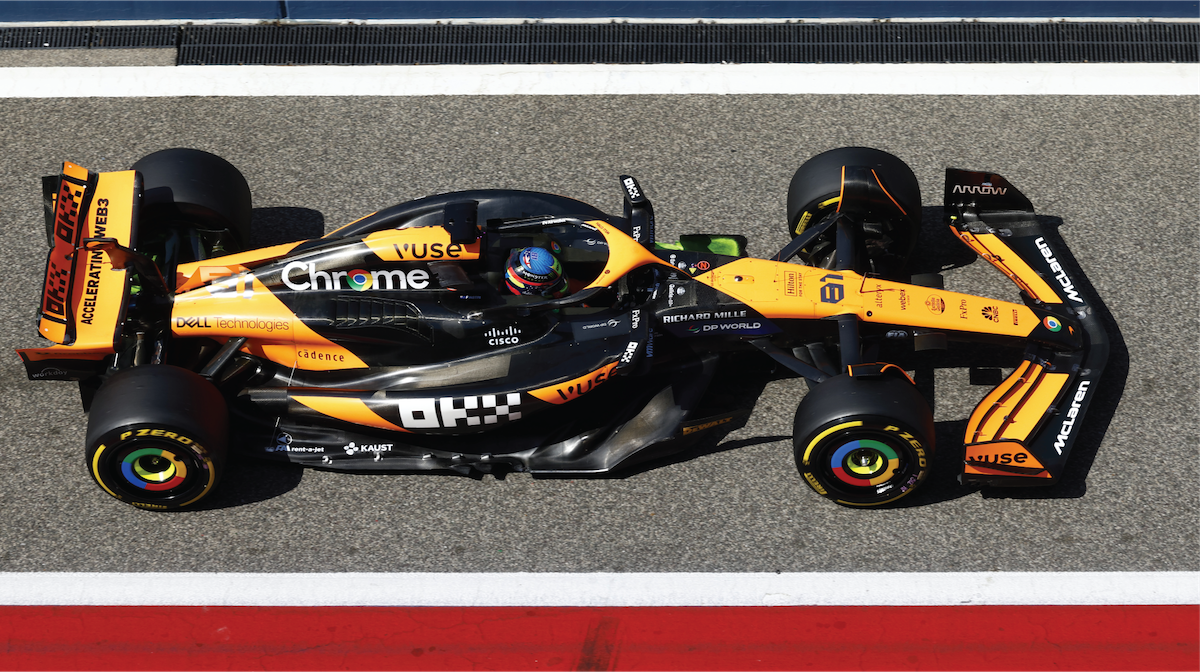KAUST and McLaren Racing take partnership to the next level

Credit: McLaren Racing Team 2024
Building on a successful relationship spanning five years, KAUST and McLaren Racing have elevated their partnership to achieve a closer level of collaboration on cutting-edge research projects.
The expanded partnership broadens the areas of research to all motorsport teams within McLaren Racing, which, in addition to Formula 1, takes part in multiple racing series, including the all-electric Formula E and Extreme E categories, IndyCar and esports. “As world leaders in innovation and technology, KAUST and McLaren will collaborate on research projects to support on-track success, drive sustainability and contribute to KAUST's agenda for accelerated impact,” says Christian Schramm, Director of McLaren Advanced Projects.
As part of the renewed partnership, McLaren Racing and KAUST will undertake a series of development projects serving as the ultimate real-world testbed for KAUST research innovation. To achieve this and reinforce the collaborative links between the two partners, McLaren Advanced Projects will host KAUST students and researchers at the McLaren Technology Centre to deliver joint projects.
The pilot projects in 2024 will explore areas of interest and performance for McLaren Racing across its racing series portfolio, including simulation methodologies, optimized computing and high-efficiency lubricants. These projects will apply technologies and utilize the expertise developed by KAUST in their world-class research facilities.
Throughout the partnership, the potential areas of research for the projects are expansive and will focus on delivering the research and development goals of both KAUST and McLaren Racing, leveraging the complementary knowledge. “There is a synergy of environment and expertise between KAUST and McLaren; we align with each other very well,” says Matteo Parsani, a computational fluid dynamics researcher specializing in advanced aerodynamics modeling who leads the partnership on the KAUST side.
Each project will be highly collaborative in nature. “As well as teams at KAUST, McLaren will assign its own team at the McLaren Technology Centre to work on each project,” Parsani says. “There is constant interaction, each side pushing the other forward to maintain project momentum — which really mirrors what happens in a racing team.”
As a key part of project collaboration, participating KAUST students will have the opportunity to spend time working on-site at McLaren in Woking, U.K. “The students will work closely with McLaren’s engineers,” Parsani says. “It is a fantastic opportunity for students to gain real experience working in an applied research and development environment.”
“As part of the exclusive science and technology partnership with KAUST, the visiting students will have the opportunity to work with McLaren Advanced Projects engineers in a range of interest areas, including materials and lightweight structures, circularity and sustainability, AI and machine learning, and production technology,” says Hannah Allan, Engineering Project Manager for McLaren Advanced Projects.
The renewed partnership builds on the strong ties established during the first phase of the relationship, Parsani says. “Having worked with McLaren for five years, we know what they're seeking, we understand the complexity of the challenges that they are looking to solve, and we have the people and facilities to help make a difference.”
The partnership between KAUST and McLaren presents a unique opportunity to elevate common research and performance goals. Through close collaboration, both parties can successfully leverage the combined knowledge and world-class resources to drive impactful advancements and foster groundbreaking discoveries.

